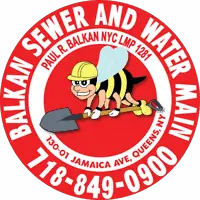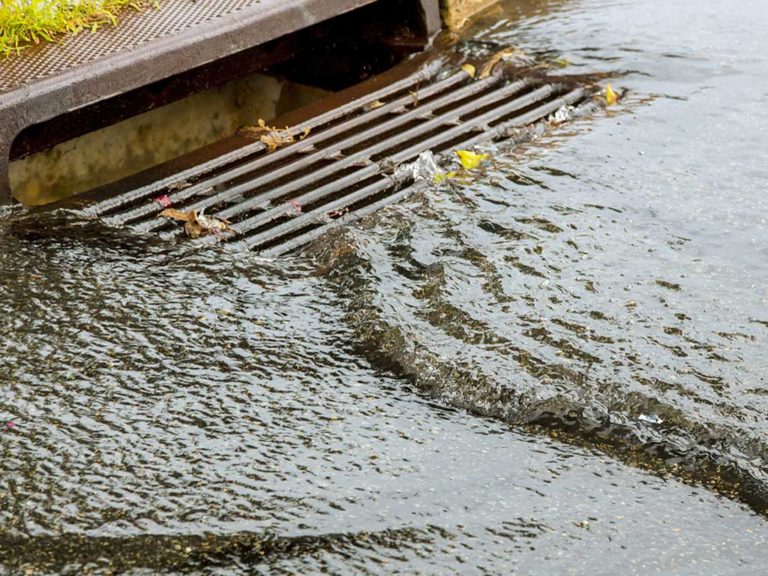Identifying your waterline materials is important for maintaining a safe and reliable water supply in your home (especially if your water line is lead) and can be determined with just a few easy steps. The New York City Department of Environmental Protection (DEP) has been sending notices to homeowners and telling them to take action if their water line pipes are lead and to make sure they determine the composition of their water lines.
Balkan can help you identify the material your water line is made of, and they are here to guide you through the process to ensure your compliance with local regulations and help safeguard the health of you and your family.
Why It’s Important to Identify Water Line Materials
By identifying the material of your water line you can take steps to make sure your drinking water is safe and complies with DEP guidelines.
Water service lines that connect your home’s plumbing to the main water supply in the street could possibly be made up of a variety of different materials. Some older homes in New York City may have water lines made of lead, galvanized steel, or brass. Of those older materials lead can pose a serious potential health risk.
DEP Water Line Material Identification
The DEP encourages homeowners to identify the material of their water service lines. They have been sending out notices to residents of the city, providing information on the importance of this task, and offering guidance on how to proceed.
Reasons Behind the Initiative
The reason behind the DEP wanting to inform homeowners is to address the potential health risks associated with lead water lines. Lead can leach into drinking water and cause serious health problems.
With plans for replacing lead water lines the city aims to protect public health and ensure access to safe drinking water for all residents. Not only that, but Governor Hochul announced in September 2024 that the state would allocate $90 million for replacing lead water lines throughout New York.
What Are The Health Risks Associated with Lead Water Lines
Exposure to lead can cause a range of adverse health effects, including:
- Developmental delays in children
- Learning difficulties and behavioral problems
- Kidney damage
- Reproductive issues
- Cardiovascular diseases
According to the Environmental Protection Agency (EPA), “there is no safe level of lead exposure“, making it crucial to identify and address lead water lines promptly.
The Need for Homeowners to Take Action
Homeowners are responsible for the safety and compliance of your property’s plumbing system. You need to determine the material of your water service line and take necessary actions, such as replace lead or galvanized steel pipes, and protect your family’s health and also add to the overall well being of your community.
DEP Approved Waterline Materials
The DEP has approved the following materials for water service lines:
Copper Water Lines
Copper is the most widely used material for water lines due to its durability, corrosion resistance, and suitability for both hot and cold water. Copper pipes meet plumbing code requirements and are the perfect choice for new installations or replacements.
Brass Water Lines
Brass, an alloy of copper and zinc, is another approved material for water service lines. It’s known for its durability and resistance to corrosion which makes it a good option for water distribution systems.
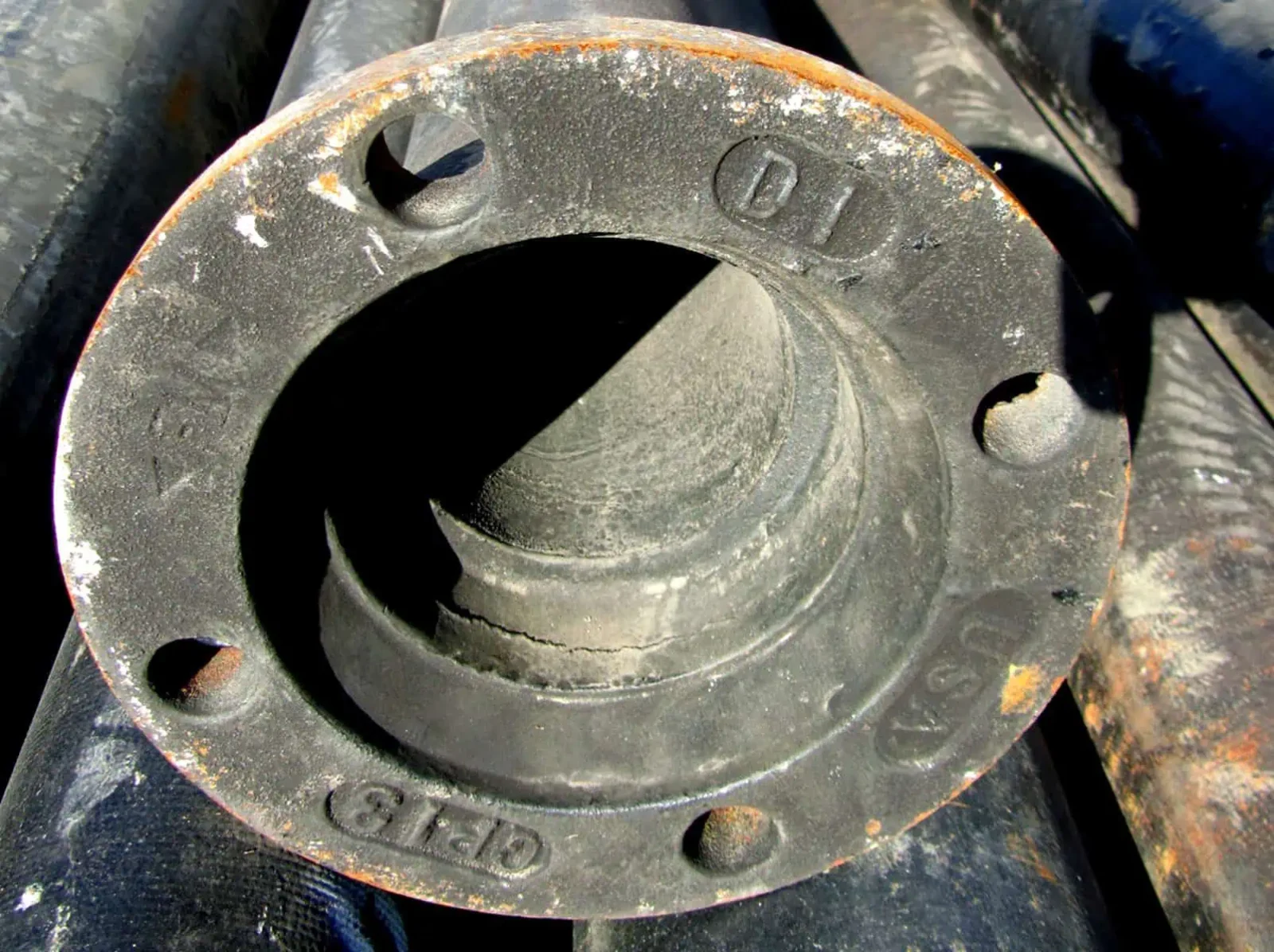
A ductile iron water pipe is cement-lined
Ductile Iron Water Lines
Ductile iron pipes are strong and durable, making them suitable for both underground water service lines and larger public water supply lines. These pipes are cement-lined and joined using gaskets and retainer glands to ensure a secure and leak-free connection.
Outdated Materials Still Present in Some Buildings
Some older buildings may still have outdated materials in place, such as:
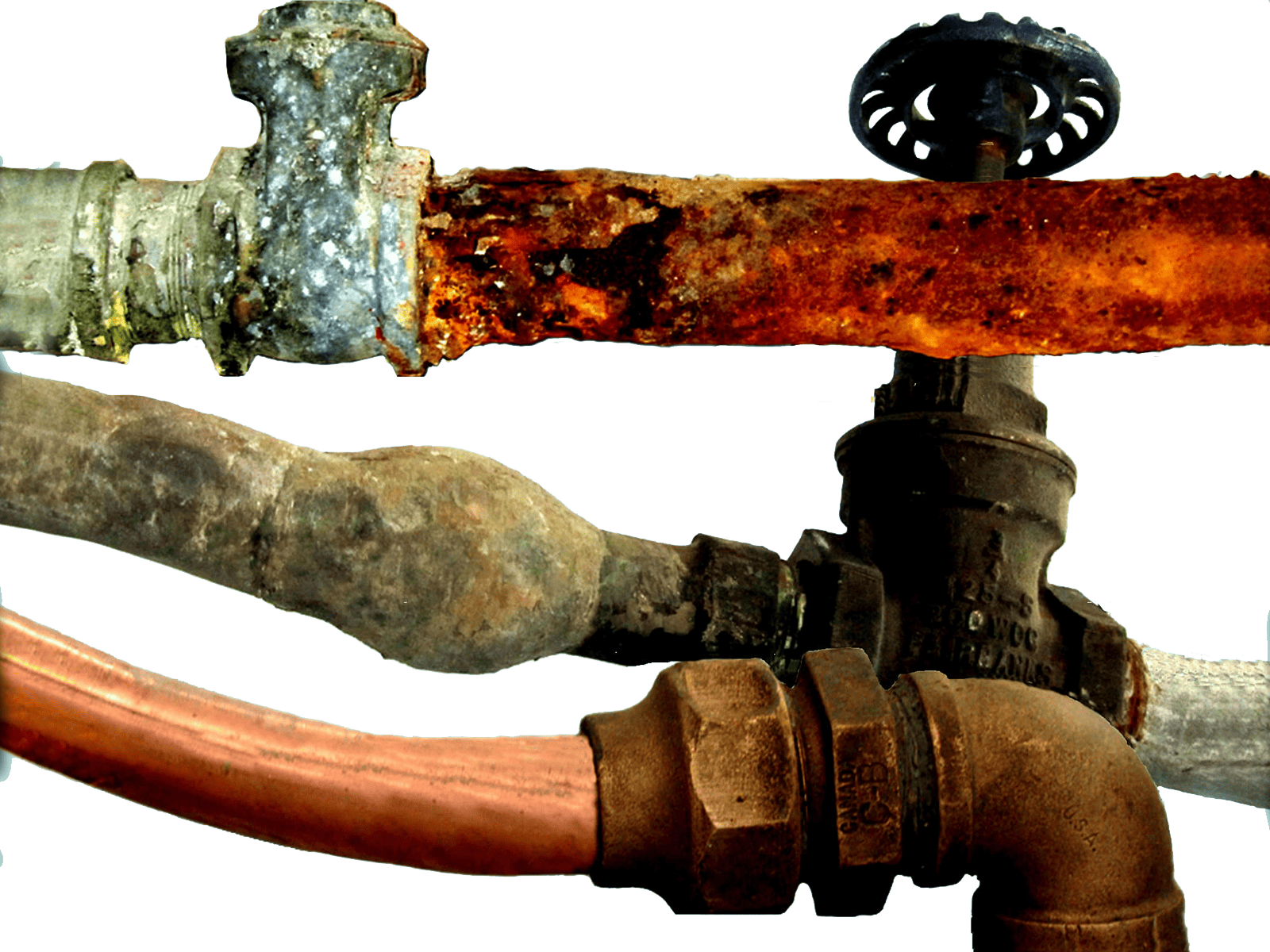
Galvanized, lead, and copper, are types of water line pipe
Lead Water Lines
Lead water lines were common in older construction but have been banned for use in newer developments due to the associated health risks. If your building has a lead water line you should replace the lines and ensure the safety of your drinking water.
Galvanized Steel Pipes
Galvanized steel pipes were once widely used for water lines but have fallen out of favor due to concerns about corrosion and limiting the volume of water being provided to the building over time. While these pipes may still be present in some older buildings, they should be replaced with approved materials when necessary.
Comparison of Material Properties and Characteristics
| Material | Durability | Corrosion Resistance | Suitability for Hot/Cold Water | NYC Code Compliance |
|---|---|---|---|---|
| Copper | High | High | Yes | Yes |
| Brass | High | High | Yes | Yes |
| Ductile Iron | High | High (with cement lining) | Yes | Yes |
| Lead | Low | Low | No | No |
| Galvanized Steel | Moderate | Low | No | No |
How to Identify Your Water Line Material
The NYC DEP has provided a step-by-step guide to help homeowners identify the material of their water lines:
1. Locating the Water Service Line
The water service line usually enters your home through the basement or crawl space. Look for the pipe that connects to your water meter and runs towards the street.
2. Visually Inspecting the Pipe
Examine the pipe closely and note its color and appearance:
- Lead pipes are dull gray and may appear soft or are easily scratched. In addition, lead lines have a wiped joint that appears as a ball of lead at the connecting point.
- Copper pipes are reddish-brown and often connected using flare fittings. Scratching the surface of a copper pipe will reveal a shiny, copper-colored interior.
- Galvanized steel pipes are silver/gray and often have a rough and uneven surface.
- Brass pipes have a yellowish color and may have a slight patina. They are typically connected using compression fittings or threaded joints.
3. Using a Magnet Test for Galvanized Steel
If you suspect your water line is made of galvanized steel, use a magnet to confirm. Magnets will stick to galvanized steel pipes but won’t stick to lead, copper, or brass.
Common Signs of Aging or Deteriorating Water Lines
Be on the lookout for signs of aging or deteriorating water lines such as:
- Discolored or rusty water
- Low water pressure
- Leaks or visible corrosion on the pipe’s exterior
If you notice any of these issues it may be time to consider water line replacement.
The Importance of Accurate Identification of Waterline Pipe Materials
Accurately identifying the material of your water service line is crucial for several reasons:
- Ensuring the safety of your drinking water
- Complying with NYC DEP guidelines and plumbing codes
- Determining the need for water line replacement
- Protecting your family’s health and well-being
Balkan’s Expertise in Water Line Services
Balkan offers a wide range of water line services to meet the needs of NYC residents including:
Water Line Material Identification Assistance
Balkan’s team of experienced professionals can help you identify the material of your water service line, providing expert guidance and support throughout the process.
Water Line Repair and Replacement
Whether your water line needs repair or a complete replacement, Balkan has the skills and equipment to get the job done efficiently and effectively. They use high-quality, code-compliant materials to ensure the longevity and reliability of your water service line.
Compliance with NYC Plumbing Codes
Balkan stays up-to-date with the latest NYC plumbing codes and regulations ensuring that all work performed adheres to the highest standards of safety and compliance.
Balkan’s Knowledgeable and Experienced Team
Balkan’s team consists of highly trained and experienced professionals who are dedicated to providing exceptional service to every customer. Their expertise and commitment to quality set them apart as a leader in the industry.
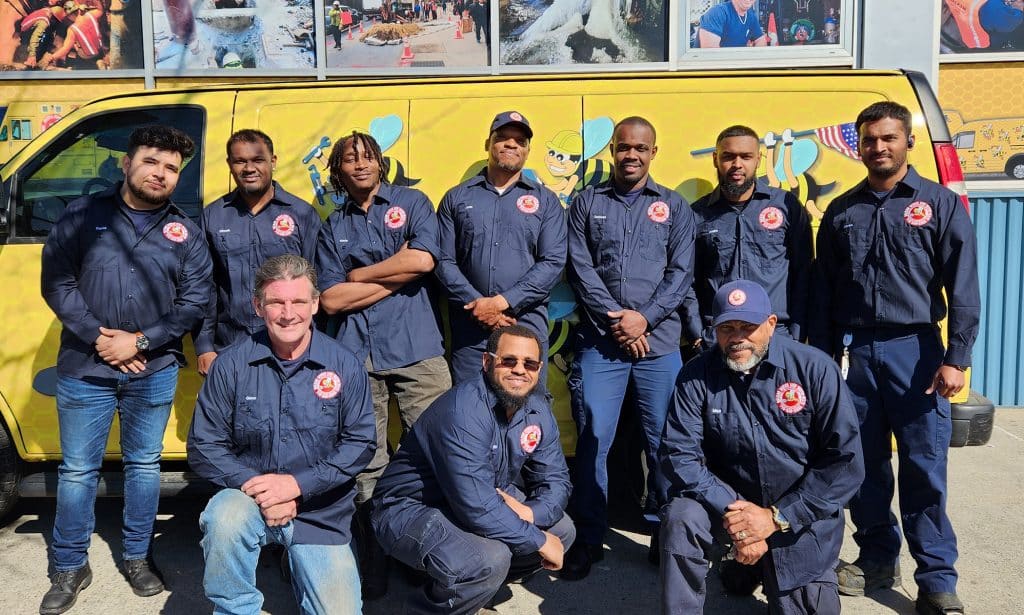
The Benefits of Replacing Outdated Water Lines
Health and Safety Improvements
Replacing outdated water lines, can significantly improve the health and safety of your drinking water. By eliminating the risk of lead leaching or corrosion you can be sure that your family has access to clean, safe water.
Enhanced Water Quality and Flow
New water lines made of copper and properly sized can improve water quality and flow, providing better pressure and volume of water. This reduces the instance of a sudden temperature change or an unexpected drop in water pressure.
Increased Property Value
Updating your water service line can increase the value of your property, making it more attractive to potential buyers and demonstrating your commitment to maintaining a safe and reliable plumbing system.
Compliance with NYC Plumbing Codes
By replacing outdated water lines with approved materials, you can ensure compliance with NYC plumbing codes and avoid potential fines or legal issues.
Peace of Mind for Homeowners
Investing in water line replacement provides peace of mind, knowing that your home’s plumbing system is safe, reliable, and built to last.
Water Line Replacement Process – Initial Consultation and Assessment
When you contact Balkan for water line replacement, their team will schedule an initial free-of-charge consultation to assess your needs and provide a detailed estimate for the work to be performed.
Obtaining Necessary Permits
Balkan will handle the process of obtaining any necessary permits from the NYC DEP and other relevant agencies, ensuring that your water line replacement project is completed in compliance with all local regulations.
Excavation and Installation Techniques
Using state-of-the-art equipment and techniques, they will carefully excavate the area around your existing water line and install the new pipe using industry best practices.
Use of High-Quality, Code-Compliant Materials
Balkan uses only the highest quality, code-compliant materials for water line replacements, such as type K copper tubing, to ensure the longevity and reliability of your new water service line.
Post-Installation Testing and Inspection
After installing your new water line, they will conduct thorough testing and inspection to verify proper installation and functionality, giving you the confidence that your plumbing system is operating at its best.
Conclusion
Balkan’s commitment to assisting NYC homeowners in complying with DEP guidelines and maintaining safe, code-compliant plumbing systems is unparalleled. With their expertise and dedication, you can feel confident that your water line replacement project will be completed efficiently and effectively.
Don’t wait until you experience problems with your water line to take action. Be proactive and contact Balkan today to schedule your water line material identification and discuss your options for replacement. Your family’s health and well-being are worth the investment.
